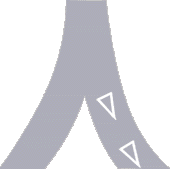TYPE AND MEANING OF TRAFFIC PAVEMENT MARKINGS
更新日:
2023年07月25日
Pavement Markings
Regulatory Marking
1. No U-turn
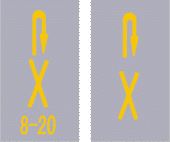
2. No entry on the right-hand part of the road for overtaking
(1)and(2)indicate vehicles passing the lanes A and B must not enter the right-hand part of the road for overtaking
(3)indicates vehicles passing the lane B must not enter the right-hand part of the road for overtaking
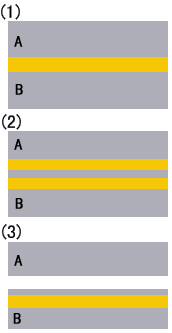
3. Lane change prohibited
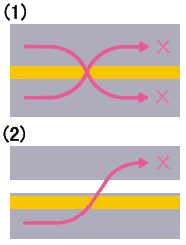
4. No parking or stopping
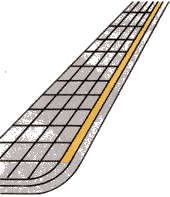
5. No parking
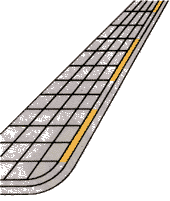
6. Maximum speed limit

7. No entry zone

8. No stoping zone
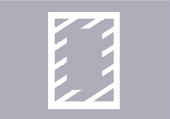
9. Side strip
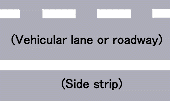
10. No parking/stopping side strip
Parking or stopping is prohibited inside the strips demarcated by a single solid white line with parallel broken white line
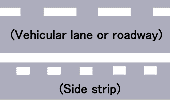
11. Pedestrian zone
Parking or stopping of vehicles and passage of light vehicles are prohiited inside side strips with double solid white line
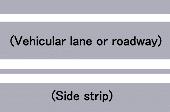
12. Vehicular lane
1.Vehicular lane established at a section of road other than main through lane of national expressway
(1) Indication by painted pavement markings
Or
(2) Indication by raised markings
2.Vehicular lanes established on the main through lane of national expressway

13. Right of way designation
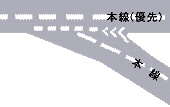
Indicates the through lane ahead has the right of way when two through lanes merge
14. Lane distinction by types of vehicles
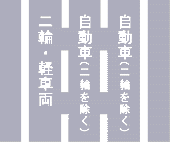
(Characters marked in each lane show vehicle lane designations)
15. Lane distinction for specific types of vehicles
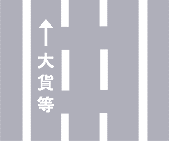
16. Lane for tow trucks on national expressway
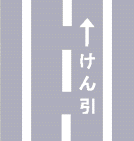
17. Exclusive vehicular lane
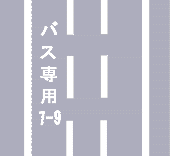
18. Route bus priority lane
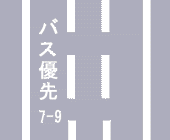
19. Designated lane for tow trucks on motorways
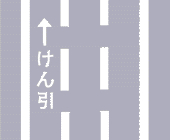
20. Lane direction
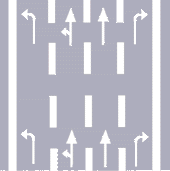
21. Right(Left)turn route

22. Parallel parking
1.Indicates parking space for one vehicle
2.Indicates parking space for more than two vehicles
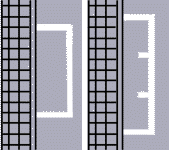
23. Rectangular parking
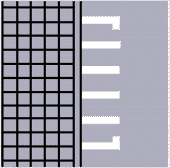
24. Diagonal parking
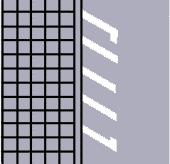
25. Bicycle zone inside the sidewalk
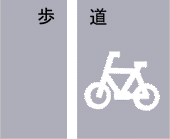
(Indicates bicycles must pass on sidewalks open to bicycles in the designated zone)
26. No entry of bicycles into the intersection
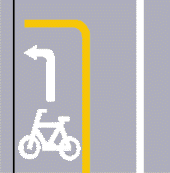
(Bicycles must not enter the intersection beyond the pavement marking)
27. End of traffic regulation
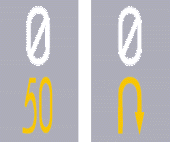
(The end of traffic regulated zone indicated by the pavement marking)
DESIGNATION PAVEMENT MARKING
28. Pedestrian crossing
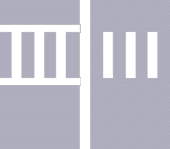
29. Diagonal crossing permitted
1.Permitted during designated hours
2.Permitted throughout the day

30. Bicycle crossing lane
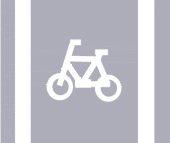
31. Use the right part of the road
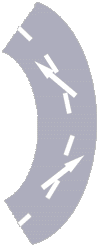
32. Stop line

33. Stop line for two-and four-wheeled vehicles
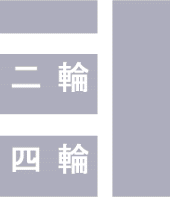
34. Lane direction
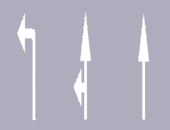
35. Center line
1.Roads where passing the center line is strictly prohibited
2.Center line on other roads
(1) Painted marking
(2) Raised marking
3.Designation of center line at places other than the center of the road
(1) In effect on all days and hours
(2) In effect on designated days or hours
4.Marking for indicating the center line on the road when this is particularly necessary as mentioned in items 1 and 3-(1)

36. Border line of vehicular lanes
1.Painted marking
Or
2.Raised marking
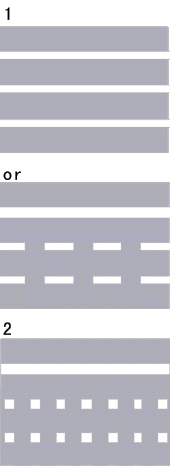
37. Safety zone
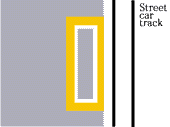
38. Approach to a safety zone or an obstruction
1.Pass the designated side
2.Pass either side
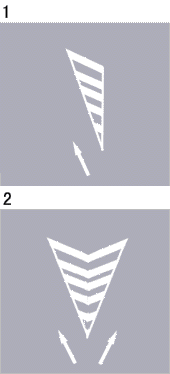
39. Channeling zone
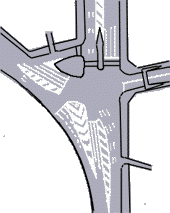
(Channeling zone refers to the markings on the road that discourage passage on that section of the road to promote safe and smooth running of the traffic)
40. Street-Car stop
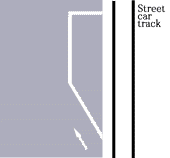
41. Approach to pedestrian and bicycle crossing
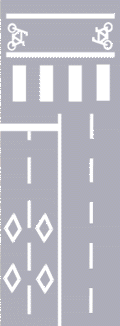
42. Priority road ahead
(Give Way)
